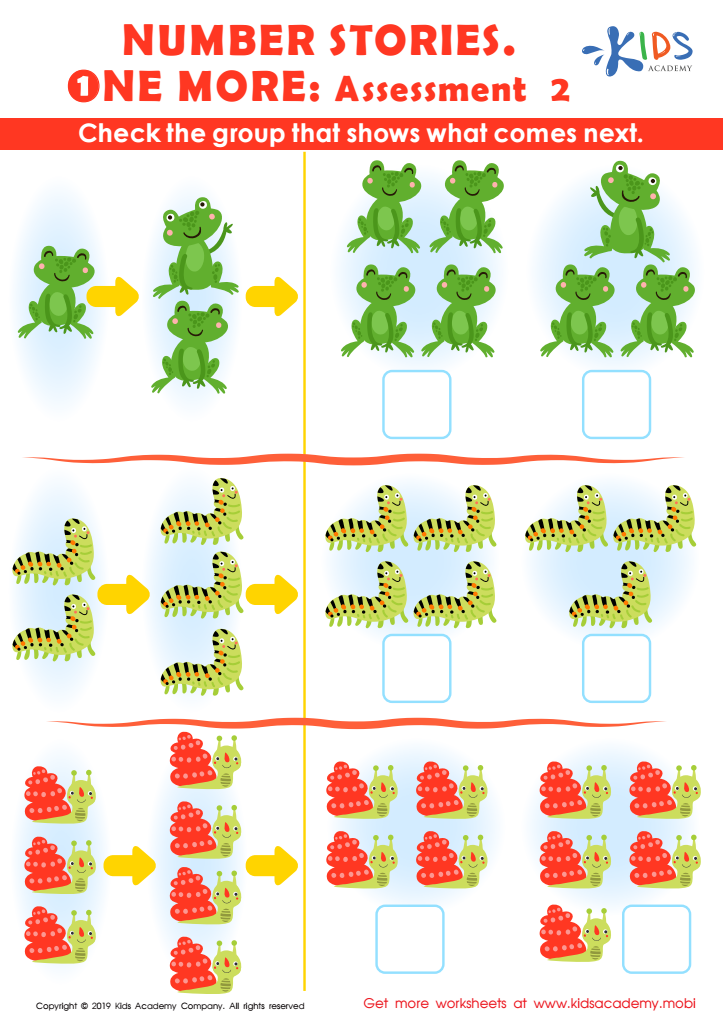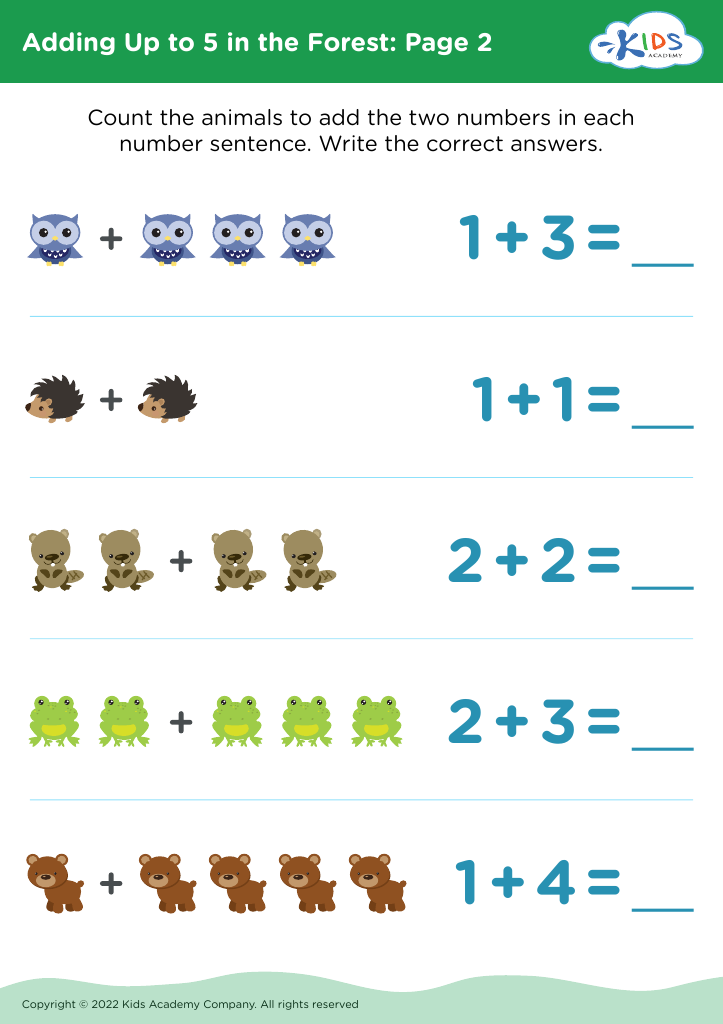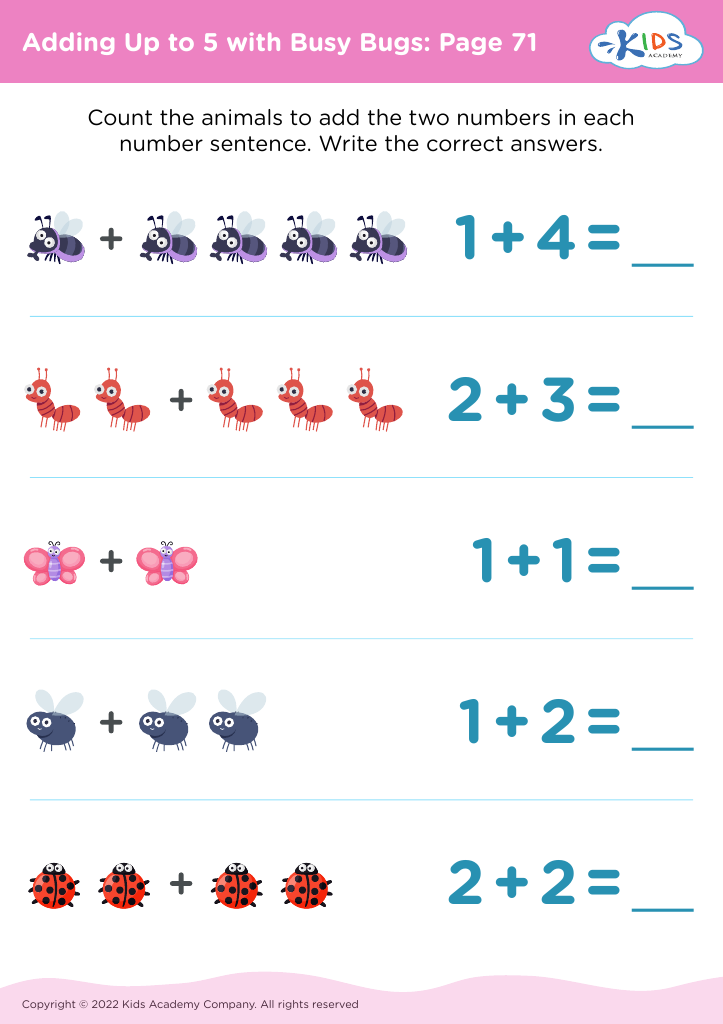Problem-solving practice Addition Worksheets for Ages 4-6
3 filtered results
-
From - To
Explore our engaging Problem-Solving Practice Addition Worksheets designed specifically for children aged 4-6! These fun and interactive worksheets will help young learners develop essential math skills through real-life scenarios. With colorful illustrations and age-appropriate problems, children will enhance their critical thinking and strengthen their addition abilities while enjoying the learning process. Each worksheet encourages creativity and logical reasoning, making math both enjoyable and educational. Perfect for home or classroom use, our Problem-Solving Practice Addition Worksheets are an ideal resource for teachers and parents looking to support early math development. Start building a strong mathematical foundation for your child today!


Number Stories One More – Assessment 2 Worksheet
Parents and teachers should prioritize problem-solving practice in addition for children aged 4-6 as it lays a vital foundation for mathematical skills and overall cognitive development. At this age, children are curious and eager to explore their environments; engaging them in problem-solving tasks taps into their natural inclination to understand the world around them.
Problem-solving in addition helps develop critical thinking skills, promoting independence and resilience as children learn to approach challenges. It allows them to visualize problems through manipulatives or storytelling, making abstract concepts more tangible and engaging. When children solve addition problems, they also learn how to break down complex tasks into manageable steps, fostering a sense of accomplishment.
Furthermore, strong early math skills are correlated with future academic success in various subjects, not just math. Engaging in problem-solving practices helps build confidence, encouraging a positive attitude towards learning. This practice is also an opportunity for parents and teachers to support social-emotional skills, as working collaboratively can enhance communication and teamwork abilities. Ultimately, nurturing these foundational skills during these formative years lays the groundwork for lifelong learning and problem-solving abilities, making it essential for educators and parents alike.


 Assign to My Students
Assign to My Students



















